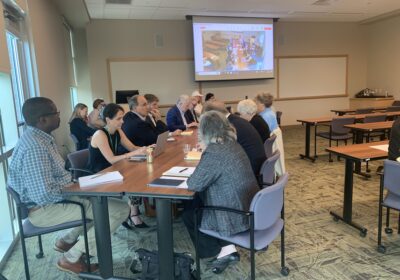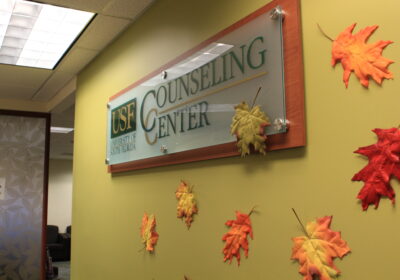USF Physicians Group to restructure faculty salaries
USF Physicians Group will see their pocketbooks shrink this fiscal year.
Against a backdrop of national health care reform, USF is looking to save about $5 million by restructuring faculty pay to reflect the number of patients seen.
The logic behind the cuts, USF Physicians Group CEO Jeffrey Lowenkron said, is quite simple.
Those who are doing more will be paid more, and those who are doing less will be paid less, he said. Were taking in less than were spending. We have a lower volume of patients, despite having more physicians.
Faculty pay will be determined by contracts, grants, research, clinical work and teaching in addition to patient care. On average, USF Health physicians earn in the higher tiers of the university, between about $67,000 to $1.26 million, according to a database compiled by the Tampa Bay Business Journal last year.
Lowenkron said the cuts being made are not permanent, and offer ways for faculty to earn back the pay they may lose, if they are able generate more revenue.
This is an adjustment to not cut, but to position ourselves to give everyone an opportunity to succeed, and it aligns with how our organization will do better, he said. This was a thoughtful, compassionate and understanding way (to implement the cuts), before we knew whose names were on the list.
But many faculty are concerned about the impact that basing pay on patient care may have, Dennis Ledford, vice president for the Morsani College of Medicine Faculty Council, said.
Theres a lot of concern, he said. A lot of people are upset because theyre being told their salaries are going to decrease, but I dont think thats too surprising. Most of them would say to you theyre not happy the way things are going, because theres change afoot, but the doctors are not necessarily controlling it, nor do the physicians perceive that the change is necessarily promoting good care, but thats judged by the physicians perspective, whos always been the patients advocate. But the reality is that some doctors arent necessarily the best judge of care, because more care doesnt always equal good care.
Yet the structure is one that physicians outside the university setting are familiar with, he said.
Academic physicians, I think, feel more stress because things that have always been a constant are not longer a given, he said. Now we have to make sure we have the resources to cover it and were not sure we can, whereas doctors in practice have always accepted, I have to generate the revenue to get paid. Academic physicians are inherently not focused on the business of medicine, but on education and giving good care, too.
Education, however, may be impacted by the new structure.
I think theres as much incentive as ever to teach, Ledford said. The joy and excitement of medicine has not changed. The commitment to the individual patient and the idea that we have to pass on the culture of medicine hasnt changed. But when people are stressed, things that dont generate revenue are going to have to be looked at carefully.
Though there will not be hiring freezes, Lowenkron said USF has changed the way it recruits new doctors.
When I first got here, people were recruited based on need and want, he said. (Now we look at) how it fits into business.
Lowenkron said USF Health administration structures and costs will also be examined, and that changes will continue to roll out in years moving forward.
But the need to make financial changes stem from larger scale problems, Ledford said.
The nation cannot afford the health care system the way its currently structured, he said. If theres a debate going on about it nationally, if you take a large faculty of doctors, its only going to be intensified, because now you have multiple factors not just the health care system, but youve got the political system, funding for research (and) funding for education all under pressure.






